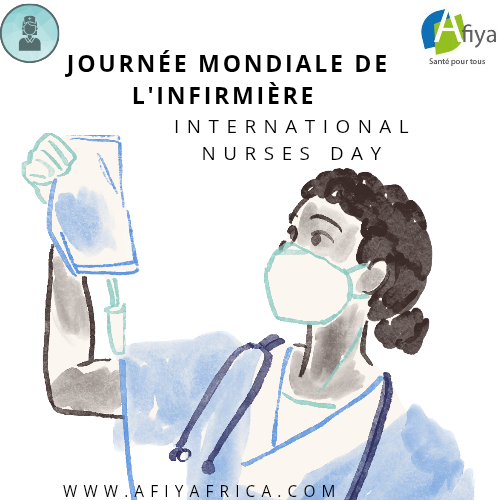On this May 12, 2025, International Nurses Day highlights a theme that is both essential and urgent: “Our Nurses. Our Future. The Economic Power of Care”, as declared by the International Council of Nurses (ICN). This message resonates deeply across Africa, where nurses are often the backbone of health systems, particularly in rural and underserved areas.
On our continent, nurses are much more than care providers. They are health educators, case managers, and often the only accessible health professionals for remote populations. They play a vital role in achieving universal health coverage by providing quality primary care and actively engaging in prevention and health promotion.
However, these professionals face many challenges. The shortage of nurses is alarming: in 2020, Benin had only 2.9 nurses and midwives per 10,000 people, compared to 122 in Europian country. This situation is worsened by the migration of healthcare workers to countries offering better working conditions and higher pay. Nigeria, for instance, has lost 75,000 nurses in five years, prompting authorities to impose a two-year moratorium on departures abroad.
In response to these challenges, initiatives are emerging to strengthen the nursing profession in Africa. The ICN’s ODENNA program aims to increase the influence of nurses’ associations on the continent by developing leadership and supporting professional development. Additionally, continuing education projects and task-shifting programs—such as those implemented in Niger and Côte d’Ivoire—help enhance nurses’ skills and improve access to care in rural areas.
On this International Nurses Day, it is crucial to recognize and support the central role of nurses in Africa. Investing in their well-being, training, and professional recognition is key to strengthening health systems and ensuring a healthy future for our communities.
To all the nurses of Africa: thank you for your dedication, resilience, and unwavering commitment to the health of our people.
Team Afiya







OTHER ARTICLES
Editorial — Prevent, inform, and act for women’s health in Africa
Kenya : Government Prioritises Maternal Health and Strengthens Support for Community Health Promoters
Strengthening pandemic prevention, preparedness, and response capacities in Senegal using the “One Health” approach